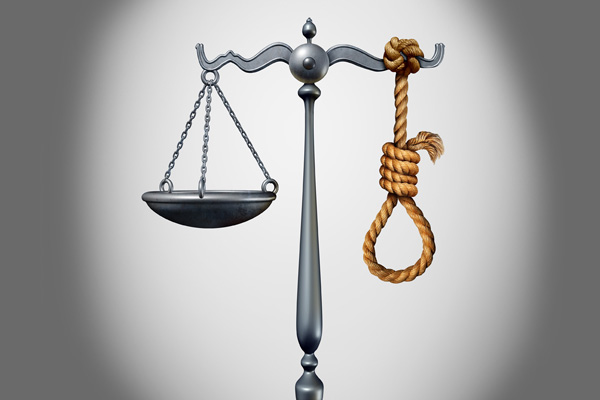Capital punishment, also known as the death penalty, is a highly controversial and divisive issue in the field of criminal justice. While some people believe that it is a necessary and justifiable punishment for certain crimes, others argue that it is a violation of human rights and is morally wrong. In this article, we will explore the ethical considerations surrounding capital punishment.
The Argument in Favor of Capital Punishment

Those who support the use of capital punishment argue that it serves as a deterrent for potential criminals. They believe that the fear of the death penalty will dissuade people from committing heinous crimes, resulting in a safer society. Additionally, supporters of capital punishment argue that certain crimes, such as murder or treason, are so severe that they warrant the ultimate punishment.
The Argument Against Capital Punishment
Opponents of capital punishment argue that it is a violation of the right to life. They believe that all human beings have the right to life and that the death penalty is a cruel and inhumane punishment. Furthermore, opponents argue that the use of capital punishment is fundamentally flawed because it is irreversible. If an innocent person is wrongly convicted and sentenced to death, there is no way to reverse the decision.
The Ethical Considerations
When considering the ethical implications of capital punishment, there are several factors to consider. First and foremost, there is the question of whether the death penalty is an effective deterrent for crime. While some studies have suggested that it may have a deterrent effect, others have found no correlation between the use of capital punishment and lower crime rates.
Another ethical consideration is the potential for wrongful convictions. The criminal justice system is not infallible, and there have been numerous cases of innocent people being wrongly convicted and sentenced to death. The risk of executing an innocent person raises serious ethical concerns about the use of capital punishment.
The question of whether the death penalty is a violation of human rights is also a crucial ethical consideration. The right to life is a fundamental human right, and many argue that the death penalty violates this right. Additionally, opponents of capital punishment argue that it is a form of cruel and inhumane punishment, which is also a violation of human rights.
The use of capital punishment is a complex and divisive issue, with valid arguments on both sides. However, the ethical considerations surrounding the death penalty cannot be ignored. The potential for wrongful convictions, the question of its effectiveness as a deterrent for crime, and the ethical implications of violating the right to life must all be carefully considered when discussing capital punishment.











Comments